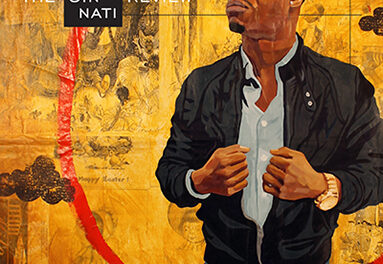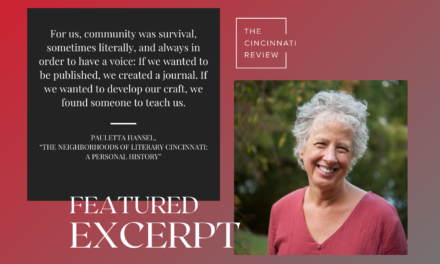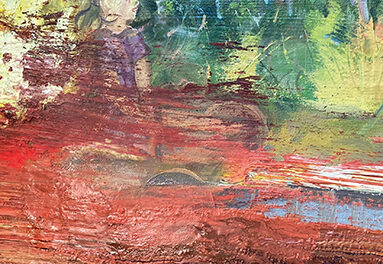It will be better, our friend said,
to just accept that everything
is gone—as though lightening
with that expression
the weight of each breathless
click throughout the evening,
as on a map we watched
her apartment standing
right beyond the fire’s red
line but never crossing
in. As if after evacuating
the home, one next empties
hope. I wished for
this capacity myself—not
the scope, but to answer
my own dumb little
wishes—that, running
through the nearly empty
coffee shop to the back
bathroom (my daughter
in the midst of a playground
accident), we weren’t just
dashing through the scene
of a past life: in this place,
for hours, I sat. Breathed.
A week after the fires, miles
south, my throat still tinged
with the lingering
smoke—I couldn’t tell
which problem I had.
I was looking for anything
I could let go—even
the tumbleweed snapped
by wind from the wide bush
of baby’s breath in our
garden, the one I just
could not bring myself to
cut back this year. It caught
in the fence, the tumbler,
and later, curious, I gathered
it again, wrenching the brittle
branches free of their
own tips, now held down
by ice. No longer a full head
of white—a little creature
of pods, each clinging to thin
branches brushed back from
the main line—as though
the wind shocked it, slicked
back and stiff. Now what,
I wondered, are you going to do
with this. Toss it back in
the snow, out of the inn?
Fold it under the heavy black
eyelid of the alley can?
Nothing seemed to match
the ceremony of its own
unkemptness. I didn’t even
let it sit on the rug. This is
so weird, said my wife, by which
I think she meant that love is
unpredictable or maybe that
I should take my branch
back outside. I was delaying
what surely would come, but
for now, it both was and was
not—the state in which we
waited, tossing out the cheap
decoys of dominoes, puzzles,
as if counting would ward off
the fire’s progress. The eight
clean glasses placed upside
down on the shelf so as not
to fill with dust; the hemispheres
of bread torn for soup. How
both languages, plenty and loss,
sit like warm stones in our
mouths. And how each,
regardless, emerges whole.
In the morning, the table
bore a note, where a human
once had been: I’m sorry,
she said, to disappear so early—but
I just have to know.
See more poems from Issue 20.1 by purchasing a copy in our online store. Digital copies only $5.











